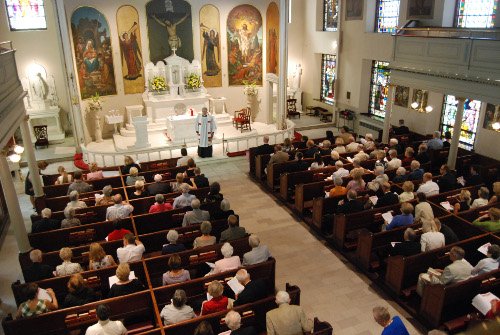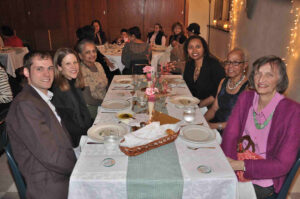Teresa Mee challenges us to think about the task of forsaking the passivity caused by a too-powerful church institution – to build strong, equal, church communities.
I like to think of Church as a living community of persons equal in dignity, following together a way of life inspired by and centred on the way of life of the historic Jesus of Nazareth.
The historic Jesus of Nazareth is probably the last person one would want to have anywhere near an institutional church. His most earnest desire, as he moved around among a mostly underprivileged people celebrating meals and entering into dialogue with them in their homes was to inspire and lead them and his many followers to the joy and liberation of a Kingdom of Heaven in this world and the next. The Kingdom of Heaven the historic Jesus espoused consistently required customary priorities to be reversed. Temple authorities, and institutions underpinning them, had to be swept aside to make way for a newly empowered and free community living according to God’s will and left unfettered by a Priestly hierarchy.
The idea of a living community of members equal in dignity doesn’t sit easy with institutionalism. Still less can the idea of a living community sit easy with half or more of its members being marginalised and without voice. Such a situation brings out starkly that an institutional church ultimately serves the institution and that its dire consequence has been a centuries long passivity within congregations, which will take enormous effort to turn around.
Living Christian community does sit easy with, ‘I am among you as the one who serves’(Lk. 22: 27 ), and we have the ideal of a Christian community with a secure, clearly defined Centre expressed in ‘…may they all be one: as Thou Father art in me and I in Thee, so also may they be one in us’ (Jn 17: 21). The only law is the law of love of God and neighbour. In this model there is no place for marginalising of any group, nor indeed for the wielding of the kind of abusive power that leads to corruption. Living community presupposes mutual respectful listening, mutual understanding and full participation of all its members through on-going dialogue, all leading to personal and community growth and development.
It is becoming increasingly difficult to recognise the features of such a living Christian community in an institutional Church characterised by elitist unlimited power-wielding over a silent, subserviently submissive majority. It brings out starkly that an institutional church ultimately serves the institution and that its dire consequence has been a centuries long passivity within congregations which will take enormous effort to turn around.
The challenge facing us today is how to move on from lamenting the status quo to taking initiative for action. It’s the challenge of crossing over from institutionalism to the ideal of Christian community.
How can we set about it?

